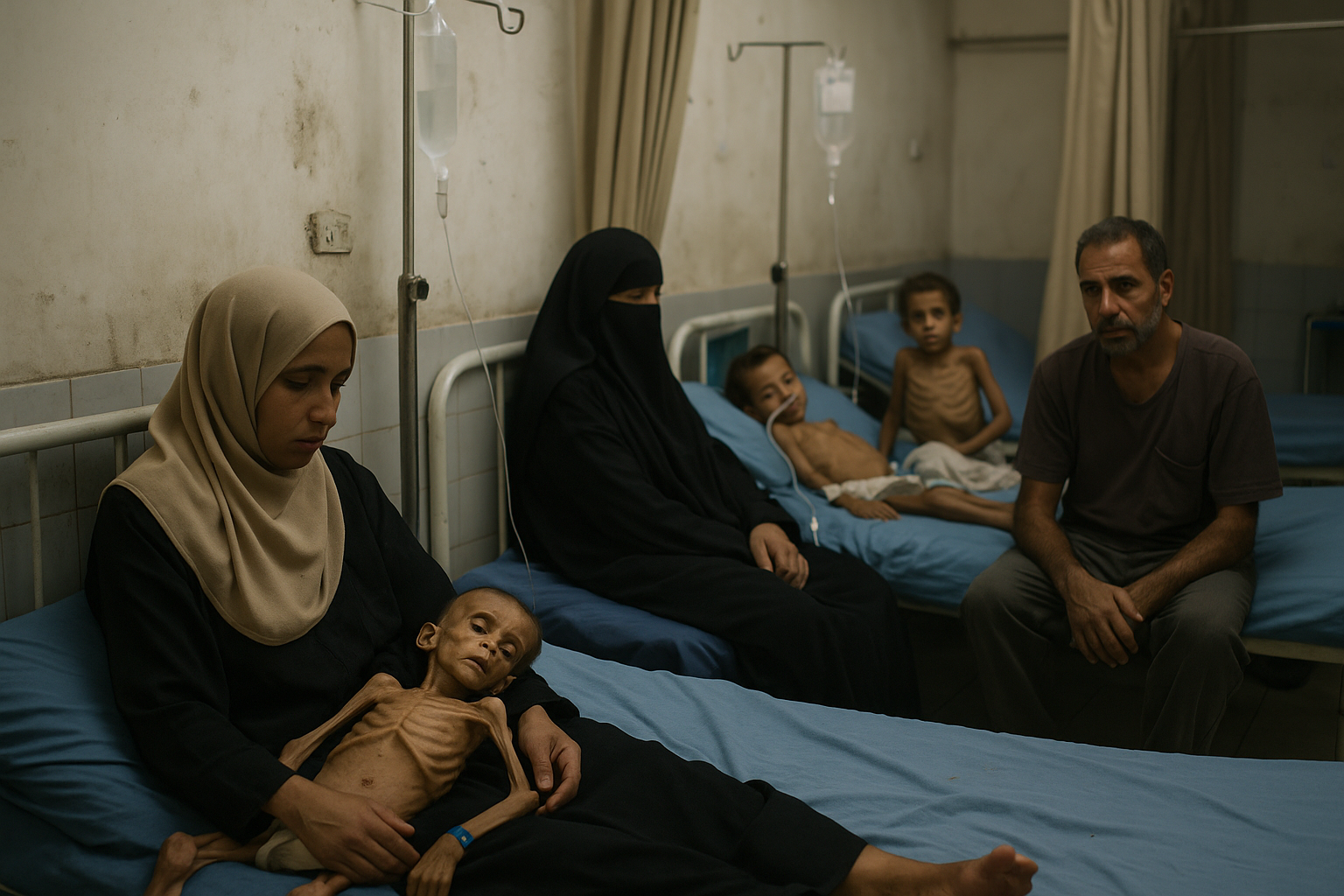UNICEF Warns of Escalating Child Malnutrition Crisis in Gaza Amid Conflict
In August, screenings across Gaza revealed that 13.5% of children were acutely malnourished, a sharp increase from 8.3% in July.

The humanitarian situation in the Gaza Strip continues to deteriorate, with child malnutrition reaching record levels, according to the latest data released by UNICEF and its nutrition partners. The worsening crisis is being fueled by intensifying military operations, mass displacement, and the near-collapse of basic services, leaving thousands of children at risk of death from preventable hunger.
Rising Malnutrition Rates Among Children
In August, screenings across Gaza revealed that 13.5% of children were acutely malnourished, a sharp increase from 8.3% in July. The crisis is most severe in Gaza City, where famine was officially declared last month. There, nearly 1 in 5 children (19%) were diagnosed with acute malnutrition, up from 16% the month prior.
In absolute numbers, 12,800 children were identified as acutely malnourished in August. However, UNICEF stressed that this number reflects reduced screening capacity due to the closure of at least 10 outpatient treatment centres in Gaza City and North Gaza. In July, when more clinics were operational, 13,000 children were identified, indicating that the true burden is likely much higher than current figures show.
Even more concerning, severe acute malnutrition (SAM) — the deadliest form of malnutrition — has risen dramatically. In August, 23% of children admitted for treatment were suffering from SAM, nearly double the figure recorded six months earlier.
“No Child Should Suffer from Malnutrition”
UNICEF Executive Director Catherine Russell said the escalation of violence and restrictions on humanitarian access are compounding the crisis:
“In August, 1 in 5 children in Gaza City was diagnosed with acute malnutrition and in need of the life-saving nutritional support and treatment that UNICEF provides. We have been able to get more supplies into the Gaza Strip. But with military escalation in Gaza City, around a dozen nutrition centres have been forced to close, leaving children even more vulnerable. Nutrition services must be protected in Gaza City and across Gaza. No child should suffer from malnutrition, which we can prevent and treat when we have the access and can deliver safely.”
Pregnant Women and Infants at Extreme Risk
The crisis is not limited to children under five. Pregnant and breastfeeding women are facing severe food insecurity, with many unable to access sufficient nutrition. This is having devastating consequences for newborns:
-
1 in 5 babies in Gaza is now born prematurely or underweight.
-
Health professionals have been forced to scale back maternal nutrition services due to lack of supplies and insecurity.
Efforts to Scale Up Nutrition Support
UNICEF and its partners are attempting to scale up interventions across 140 distribution sites in Gaza, providing life-saving food and therapeutic treatment. Stocks of Ready-to-Use Therapeutic Food (RUTF) have recently increased, enough to cover expected cases of severe acute malnutrition through the end of 2025.
However, UNICEF warns that supplies for pregnant women, breastfeeding mothers, and infants remain critically insufficient. Preventive stocks, fortified foods, and other nutrition essentials are urgently needed to stop malnutrition before it develops into life-threatening conditions.
Markets Recover Slightly, but Families Still Struggle
Since the limited resumption of commercial goods entering Gaza, food prices have begun to decline from extreme highs. Yet, for many of the most vulnerable families, basic goods remain either unavailable or unaffordable. Essential supplies such as cooking gas, fuel, and food production inputs remain scarce, further weakening local food systems.
UNICEF’s Urgent Appeal
UNICEF is calling for immediate measures to prevent further catastrophe, including:
-
A reinstated ceasefire to protect civilians and allow the safe delivery of humanitarian aid.
-
Unhindered humanitarian access, ensuring the rapid and consistent flow of nutrition supplies and medical assistance.
-
Protection of civilians and infrastructure, including schools, hospitals, shelters, and water systems, in line with international humanitarian law.
-
Safe passage for families under evacuation orders, with a strict prohibition on forced displacement.
-
The immediate release of all hostages held by Hamas and other armed groups.
UNICEF stressed that preventing famine in Gaza requires sustained aid flows, restoration of local markets, and the rehabilitation of healthcare systems. Without these, the humanitarian crisis will continue to spiral, with children paying the highest price.










